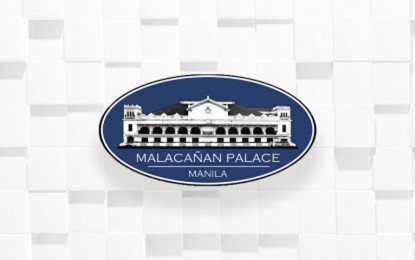
MANILA – The bills waiving the private college entrance examination fees for qualified students and creating a Bulacan Special Economic Zone and Freeport have lapsed into law, the Presidential Communications Office (PCO) said on Friday.
In a statement, the PCO said Republic Act (RA) 12006, or the Free College Entrance Examinations Act, exempts qualified graduates and graduating students from paying entrance examination fees administered by private higher education institutions (HEIs).
According to the PCO, RA 12006, which lapsed into law on June 14, "emphasizes the need to assist disadvantaged students who show potential for academic excellence."
To be eligible for free college entrance exams, qualified students must be a natural-born Filipino citizen, must belong to the top 10 percent of their graduating class, and must belong to a family whose combined household income falls below the poverty threshold as defined by the National Economic and Development Authority (NEDA).
Qualified students should apply for the college entrance exams of any private higher schools within the country and must satisfy their requirements.
The Commission on Higher Education (CHED) will determine and impose sanctions against violating private schools.
The CHED, in coordination with the Department of Education, is also mandated to promulgate the Implementing Rules and Regulations (IRR) of the law within 60 days of its effectivity.
The Coordinating Council of Private Educational Associations of the Philippines, or its equivalent institution, will be consulted for drafting the IRR.
In a statement Speaker Martin Romualdez said the new law would ensure that higher education opportunities are not hindered by economic barriers.
"This law is a crucial step in our efforts to provide equal educational opportunities for all Filipinos, regardless of their financial situation," he said. “By waiving entrance exam fees, we are removing a significant hurdle that prevents many talented and deserving students from pursuing their dreams of higher education."
“Education is the key to unlocking our nation's potential. When we invest in our youth, we invest in the future of our country. This law will help ensure that more students have the chance to succeed, thereby contributing to the growth and progress of the Philippines,” he added.
Bulacan EcoZone
Meanwhile, the PCO said Republic Act 11999, which establishes the Bulacan Special Economic Zone (EcoZone) Freeport or the Bulacan EcoZone and the Bulacan Special Economic Zone and Freeport Authority (BEZA), lapsed into law on June 13.
Under the law, the BEZA shall manage the Bulacan EcoZone, which covers the airport and the airport city projects.
“The BEZA shall be organized within 180 days upon the effectivity of the law, which will take effect 15 days following the completion of its publication in the Official Gazette, or in a newspaper of general circulation,” the PCO said.
In consultation with NEDA, BEZA shall establish the general framework for land use, planning, and development for the area covered by Bulacan EcoZone, consistent with the Philippine Development Plan of the government.
If the President does not act on a proposed law submitted by Congress, it will lapse into law after 30 days of receipt, according to the Official Gazette.
In a statement, House Ways and Means Committee chairperson Joey Salceda said the creation of the Bulacan EcoZone could bring in an estimated USD200 billion in export revenues annually.
He said the Bulacan Airport will be the "biggest investment ever made" in the Philippines.
"You have to surround it with a well-planned ecozone. You can build export industries around it, because airports are now the world’s fastest ports of entry for goods. Electronics exports thrive around airports. Imagine Mactan but on steroids,” Salceda said.
He said the area will also create "massive revenue gains" in income taxes and property taxes, so the foregone revenue from tax incentives will get offset.
Salceda expressed hope that with Bulacan airport underway, there will be investors interested in the logistics chains that a "massive" international airport will create.
“I think a lot of them will start investing in Bulacan before the airport gets completed. Years from now, when Bulacan ecozone has become our latest success story, people will look back and say this started under PBBM (President Ferdinand R. Marcos Jr.)," he said. (PNA)
